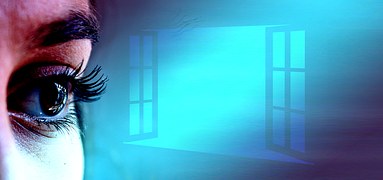Seasonal Allergies
Handle hay fever like a pro
Did you know?
Hay fever is not really a fever (it does not elevate body temperature to feverish levels). It got its name when it was first recognized as a condition because it spiked during haying season and was believed to be caused by the smell of cut hay.
The Spring Season and Allergies
With spring arriving and winter colds waning, many people take a deep breath of relief - only to find themselves sniffling and sneezing again.
Spring Allergies
If you long for the moment to open windows and doors to enjoy a warm breeze, think again. Seasonal allergies have arrived. And they are here to stay until the fall, affecting millions of North Americans.
At least one in five US residents experiences either allergy or asthma symptoms, experts say. More than 55% of Americans get positive test results for one or more allergens.
Allergies may cause attack-like fits of sneezing that can be bothersome but also quite dangerous (while driving, for example) and they can hurt your bottom line as well: About 4 million workdays are lost each year due to hay fever. Allergies are known to affect sleep, productivity and concentration. Aside from the sneezing, allergy symptoms also include nasal congestion, cough, eyes that are red, itchy and watery, and clear mucus coming from a runny nose. If you find yourself suffering from a number of these, you may be reacting to allergens around you.

What are the Causes of Seasonal Allergies?
A seasonal allergy, including hay fever, is comparable to any other allergy - meaning that your immune system is overreacting to something in the environment because it has become sensitized.
The most common seasonal allergens are
- Pollen from trees: Birch, pine, alder, cedar, hazel, horse chestnut, willow, poplar, olive (among others)
- Pollen from grasses or weeds: Ryegrass or timothy, ragweed, plantain, nettle and more
- Airborne mold spores: Mold thrives in humid conditions
For most effective treatment, it is important to know the causes of the allergy symptoms. It may be more than pollen, since 2 out of 3 people affected by allergies in the spring also experience year-round symptoms. As with any other health problem, it is best to see an expert. Allergists may be able to shed light on individual cases.

Allergies: Windows open or closed?
Fresh air is great -but if open windows mean allergic triggers start invading your home, it may be better to keep windows and doors closed. That’s because the evidence is clear: The best way to combat allergies is to avoid exposure to the trigger in the first place. If avoidance is not possible, decreasing exposure is a second best.
Of course, medication is also readily available over the counter. They include antihistamines, decongestants, nasal sprays and combination medications. Alternative treatments include natural supplements (such as butterbur) and acupuncture. Some people swear by it, some need further scientific evidence that they work.
Your doctor may also suggest immunotherapy to desensitize you to known allergens. These allergy shots help reduce hay fever symptoms in about 85 percent of people with allergic rhinitis.

Don’t
- Use air conditioning and high-efficiency filters - at home and in the car
- Check pollen counts before making plans to be outside
- Start taking medication when high pollen count days are in the forecast
- Stay indoors on dry and windy days - but take advantage of low pollen counts after a good rainfall
- Limit time outside in the morning and midday, when pollen counts are highest
- Use the dryer for laundry
- Wear sunglasses to protect eyes from pollen
- Change your clothing when you come in from outside. Rinse off pollen before going to bed.
- Run an air purifier with HEPA in the bedroom.
- Use a dehumidifier to keep indoor air dry in the summer
- Use a neti pot with saline solution to rinse nasal passages and flush pollen away.
Don’t
- Leave windows and doors open during times when pollen counts are highest
- Hang clothes to dry outside
- Let pets into your bedroom
- Mow the lawn or rake leaves. Or don’t forget to wear a mask if you can’t delegate these tasks.
- Leave your shoes on when going inside.
- Use decongestant nasal sprays for long periods of time. They can cause rebound congestion.
- Try any new treatments without talking to your doctor.

